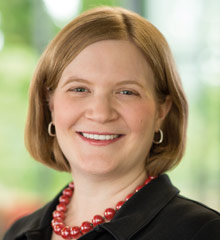Commentary on Ruth 3:1-5; 4:13-17
The book of Ruth’s gritty beginning eventually finds its way to a happy ending.
Naomi’s life moves from bitterness to pleasantness, living up to the meaning of her name (see Ruth 1:20). Ruth has found the security (see 1:9) of a settled home. The empty wombs of the two widows find fullness in the child Obed, whom Ruth bears and whom the women of the village set in Naomi’s arms, saying, “A son has been born to Naomi” (4:16).
The Moabite woman who seemed such a liability for Naomi at the beginning of their journey has become the means of her redemption. As Robert Williamson writes, “For Naomi, who has throughout the text identified security with attachment to a male, the women’s words serve as a reminder that it is ultimately Ruth’s commitment to her that has restored her life. This Moabite woman has given her more security than seven sons.”1
On God’s activity in the world
Naomi describes both the good and the bad events of her life as being from the hand of God. The narrator of the story, on the other hand, attributes only one action to God: “the LORD made [Ruth] conceive” (4:13). When Ruth finds herself gleaning in Boaz’s field, the narrator describes this specifically as chance or happenstance (2:3), while Naomi interprets it as God’s providence (2:20).2
If Naomi is convinced that God is responsible for her life’s experiences, she does not interpret her own role in securing her future to be passive; she doesn’t exactly “let go and let God.” In the verses from Ruth 3 appointed for this week, Naomi hatches a plan for Ruth to forge a relationship with Boaz — a plan that involves a covert sexual encounter — saying “My daughter, I need to seek some security for you, so that it may be well with you” (3:1). So how do we, the readers, see God at work here?
God intersects with the characters of the book of Ruth the way many of us experience God today: not as a divine physical presence, not as a booming voice from heaven, not as a visible mover of events, but as the one to whom we attribute some amount of agency in our own circumstances, as well as those of the world at large. In this way the book can feel more accessible than other parts of Scripture, where God is portrayed speaking directly to the prophets, kings, and heroes.
In today’s world we may give thanks after making a touchdown or securing a job or escaping harm in an accident, understanding God’s hand to be at work in our good fortune. We are perhaps less quick to attribute our calamities, as Naomi does (1:21), to God’s agency. Then again, if we have escaped harm and others have not, or if we have food to eat and others do not, then acknowledging God’s work in the good implies God’s hand — or at least, the absence of such a hand — in the bad.
The question of God’s activity in the world is a classic and supremely difficult theological dilemma: how do we understand the relationship between human will and divine agency? Different Christian traditions address this question in different ways, and each preacher must offer the interpretations most appropriate for her or his community. Regardless, the book of Ruth pushes us to tackle such fundamental questions.
If a widowed and destitute woman proclaimed in your faith community that “the hand of the LORD has turned against me,” how would the community respond? Would it affirm her observation, or insist that God does not bring about ill? The narrator of Ruth knows how the story will end, whereas Naomi’s theological proclamations unfold in concert with her experiences; does hindsight change our understanding of God’s activity? The book of Ruth opens the way for sustained conversations about the fundamental questions of faith grounded in a compelling, entertaining narrative.
On belonging
The book of Ruth also invites us to ask what it means for us to belong: to God, to a community, to each other. “Belonging” in Christian tradition does not imply a crass sense of ownership, but rather of caretaking, safety, and affection. Naomi, Ruth, Orpah, and their husbands have formed a family across ethnic lines and traditional hostilities. When their husbands have died, Ruth is willing to give up the land and life she knows to maintain her relationship with Naomi. By bringing Ruth the Moabite with her, Naomi, too, risks the little status she might have upon her return to Bethlehem. Belonging requires mutual vulnerability. Yet, in their commitment to each other as individuals across their differences, the two women also find belonging in the community at large.
In contrast to the anti-foreign-women polemic found elsewhere in the Hebrew Bible, including in Ezra-Nehemiah and parts of the Deuteronomistic History, the book of Ruth highlights the heroic contributions of a Moabite woman to the well-being of Israel. The genealogy at the end of the book claims Ruth the Moabite is the great-grandmother of David, God’s chosen and favored king of Israel! Further, in Matthew’s genealogy of Jesus, Ruth — along with two other Canaanite women, Tamar and Rahab — is explicitly named as an ancestor of David and, thus, of Jesus.
The interpersonal negotiations around belonging described in Ruth have intergenerational and theological implications. The text pushes its readers to reassess our understandings of insiders and outsiders, to be open to difference, and to look for ways in which our faith communities might find belonging and blessing in new relationships.
Notes:
- Robert Williamson, The Forgotten Books of the Bible: Recovering the Five Scrolls for Today (Minneapolis: Fortress, 2018), 58-9.
- Williamson, The Forgotten Books of the Bible, 58.


November 11, 2018